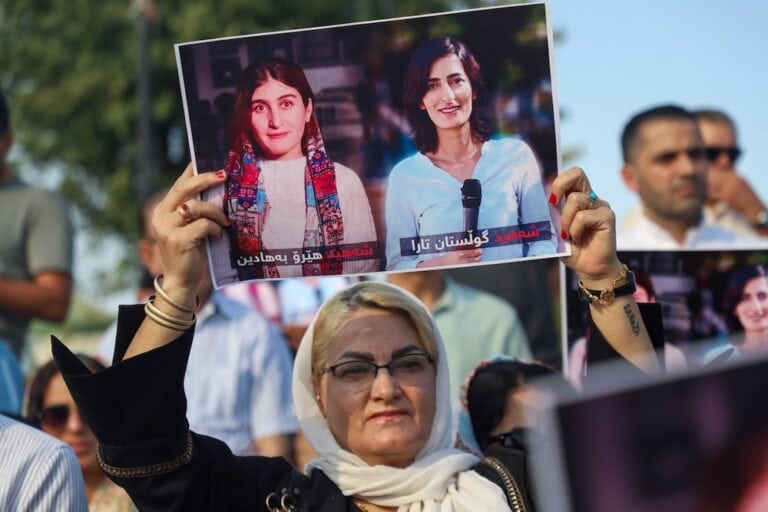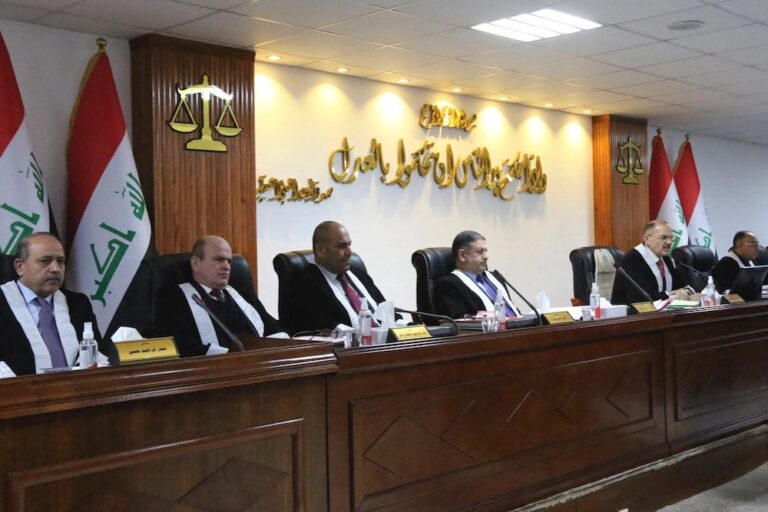(RSF/IFEX) – RSF has voiced its concern following an incident in which a CNN crew’s security escort returned fire with an automatic weapon when the crew, travelling in several vehicles, came under fire on 13 April 2003 at the entrance to the northern Iraqi town of Tikrit. The use of firearms is a practice contrary […]
(RSF/IFEX) – RSF has voiced its concern following an incident in which a CNN crew’s security escort returned fire with an automatic weapon when the crew, travelling in several vehicles, came under fire on 13 April 2003 at the entrance to the northern Iraqi town of Tikrit. The use of firearms is a practice contrary to all the rules of the profession, the organisation said.
“Such a practice sets a dangerous precedent that could jeopardise all other journalists covering this war as well as others in the future,” RSF Secretary-General Robert Ménard said. “There is a real risk that combatants will henceforth assume that all press vehicles are armed,” he warned.
“Journalists can and must try to protect themselves by such methods as travelling in bulletproof vehicles and wearing bulletproof vests, but employing private security firms that do not hesitate to use their firearms just increases the confusion between reporters and combatants,” Ménard added.
The CNN television news network has been using a private security firm to protect some its crews, including the one led by reporter Brent Sadler that came under fire as it approached a checkpoint at the entrance to Tikrit on 13 April. After a security guard in one of the vehicles returned fire, the convoy turned back. A CNN driver who was slightly injured was taken to hospital.


